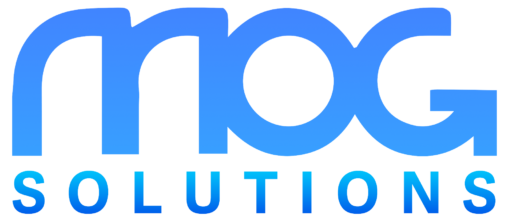What is Cloud Accounting? Benefits & How It Works

It’s a reality that some people are not fond of working with spreadsheets or becoming mired in paperwork. You can Automate your businesses’s manual & time-consuming processes like generating invoices and more. To succeed, you should build excellent partnerships with your external stakeholders and internal team members. Cloud accounting helps you collaborate seamlessly with all the concerned parties by allowing multiple users to access and work on files simultaneously. This way, you don’t need to wait for someone else to finish their work to start yours, saving timing and improving efficiency.

Cloud-Based Accounting Software Updates
- Here’s how AccountsIQ’s intelligent features are essential to help you grow your business in the tech space.
- If you’re working with clients, accountants or other advisers, you can easily grant access to your accounts with cloud based accounting software.
- Cloudvara specializes in cloud hosting services, ensuring that your accounting software is always accessible, secure, and up-to-date.
- Fully integrate your tech-stack with AccountsIQ’s customised accounting software integrations.
- Combined accounting and group consolidation software makes consolidating a breeze, with no more complicated workarounds.
- Imagine cloud accounting as your trusty virtual accountant, residing on remote servers and accessible via the Internet.
Then you realize that this report is outdated https://www.bookstime.com/articles/self-employment-tax and missing several important pieces of data, meaning it isn’t at all accurate. Employees may access information and make necessary modifications from anywhere once all systems are in the cloud. Jennifer Simonson is a business journalist with a decade of experience covering entrepreneurship and small business. Zoho Books is ideal for small-to-medium-sized businesses (SMBs) that want to take advantage of the platform’s large extensive business ecosystem.
Storing and managing data
- If businesses need a payroll component, they can add Payroll at a reasonable $40 per month plus $6 per active employee.
- This system can give you the flexibility not to sit in your office to access your accounts or check on your cash flow.
- Another outstanding feature is the fact an unlimited number of users can be added.
- Have you ever wondered how much easier (and more accurate) your business tasks might be if only you had a personal financial advisor?
- Salamanca Group manages around 80 entities in total, and used to spend two full staff weeks every month updating spreadsheets and preparing management reports.
- We hope you now have a clearer understanding of Cloud Accounting and its benefits.
- Now is the time for businesses to invest in cloud technology to future-proof their financial operations and drive sustainable growth.
This plan allows users to send unlimited invoices to up to five clients, track unlimited expenses, send unlimited estimates, track sales tax and accept credit card payments. A combination of business benefits and evolving client expectations are leading practices cloud accounting meaning to adopt more cloud accounting technology. Caseware’s 2024 State of Accounting Firms Trends Report found that 76 percent of global survey respondents used cloud-only tools or a mix of cloud and desktop solutions to help manage their practices.

Enhanced Accessibility and Remote Collaboration
Generally, cloud accounting software is a cheaper option than the on-premises alternative. There’s no need to buy hardware, nor to worry about bills adding up from upgrades and maintenance, as your vendor will take care of all that. These challenges highlight the need for more agile and scalable solutions, such as cloud accounting, to better meet the demands of modern businesses. Traditional accounting software, while effective in the past, presents several challenges in today’s dynamic business environment.
- Cloud accounting software operates similarly to traditional on-premises or self-install accounting software.
- Additionally, cloud accounting software often offers user-friendly interfaces and intuitive features, making it easier for businesses to manage their financial information.
- This isn’t just a frustrating inconvenience—it directly impacts cash flow, forecasting and operational efficiency.
- This flexibility is essential in today’s fast-paced environment where timely insights can significantly impact competitiveness.
- Many cloud accounting software integrates with payroll software that helps you calculate taxes you are paying on behalf of your employees.
Customers
They engineer their data centers in a way that delivers incomparable performance, security, and scale. With the SaaS delivery, everything is already set into a single price with clear additional users or functionality net sales costs. This leads to your company being able to keep your IT budget from cutting into other business areas. Additionally, this level of support ensures that users can easily navigate any software updates or new features. Neat’s built-in document management with unlimited monthly storage makes it an incredibly useful tool for businesses that accumulate a lot of expenses and receipts each month.

You’ll be able to automate manual accounting tasks and quickly deal with more complex finance processes, such as multi-currency consolidation and inter-company transactions. You’ll also be able to deliver accurate and actionable business intelligence to your management team. AccountsIQ boosts operational performance by automating tasks like purchase orders, approvals, expenses, and bank feeds. It supports multi-currency transactions and multi-entity consolidation, allowing you and your team to focus on strategic analysis instead of administrative work. This not only saves time but also reduces human error, ensuring more accurate financial data.
Overall Best Cloud Accounting Software with Intuitive Invoice Management Options
To accommodate a large number of cloud users, cloud applications can be multitenant, meaning that any machine may serve more than one cloud-user organization. Cloud computing poses privacy concerns because the service provider can access the data that is in the cloud at any time. It could accidentally or deliberately alter or delete information.34 Many cloud providers can share information with third parties if necessary for purposes of law and order without a warrant. That is permitted in their privacy policies, which users must agree to before they start using cloud services. Many businesses in the service sector struggle with fragmented systems that require manual data reconciliation.

Smarter workflow management

By adopting automated approval workflows, finance teams can tackle these challenges head-on. With better cloud-based technology that streamlines approval processes, businesses can gain greater visibility, improve compliance and ultimately enhance decision-making. The first step is pinpointing why traditional methods are holding you back.

